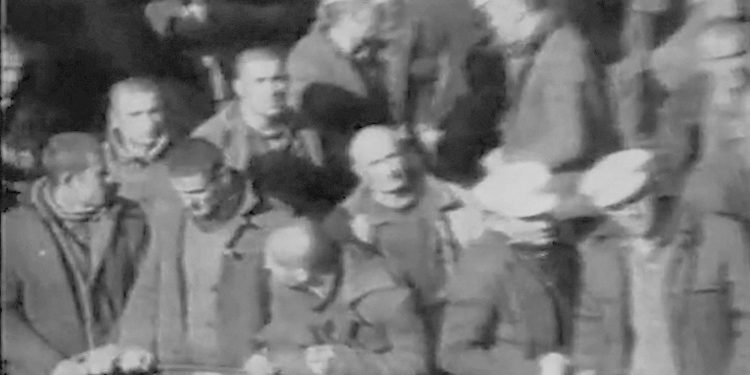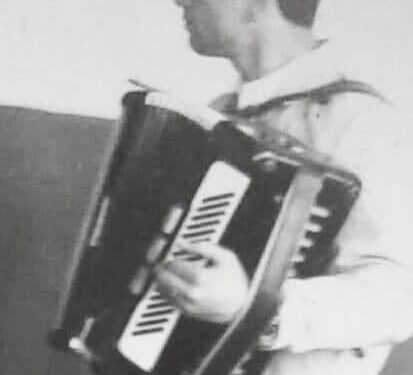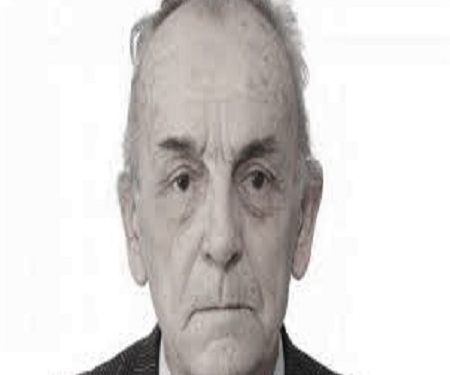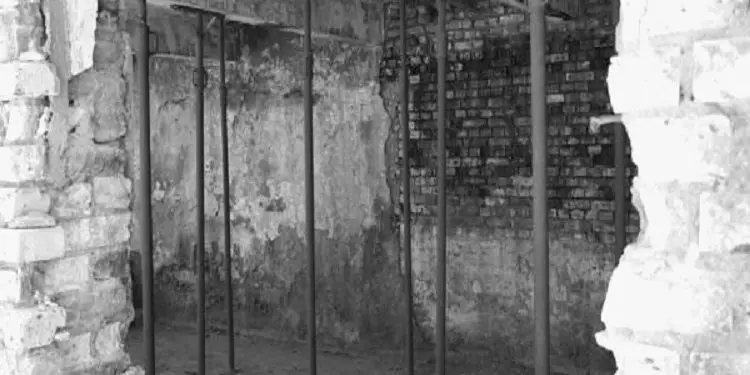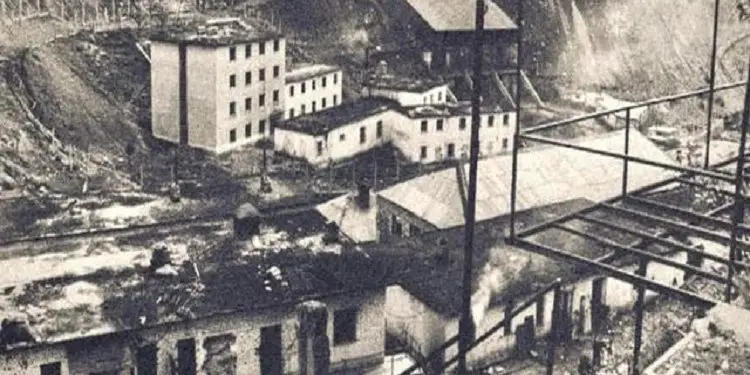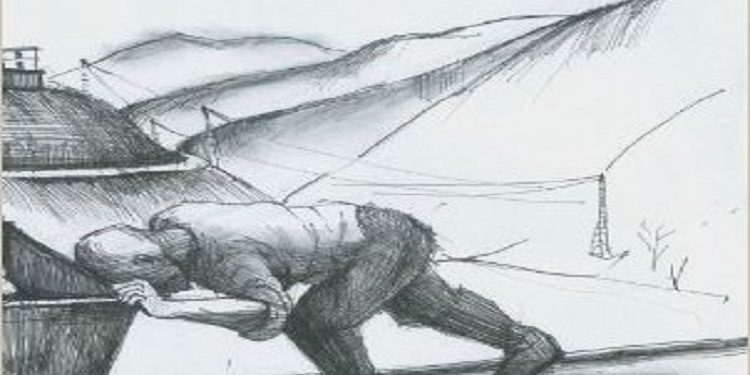From Lujeta Progni
Memorie.al / They were rebels, disobedient, dreamers. They were as impetuous as all high school students are. Courageous to the point of confronting any system that limits freedom. They were high school students and Albanian teenagers who, from the first hours, did not accept the great evil that was occupying the country, starting after the end of the war in 1944. Many of them came from families with different political affiliations, but to all hoped to build a future different from the propaganda of the newly established regime. Although only 15 or 16 years old, many Albanian high school students found ways to contribute individually or organize in small groups, to oppose Albania’s isolation from the rest of the world.
The groups of young high school students that were formed in Vlora, Shkodër, Tirana and other cities are known for their open opposition to the regime and the spread of awareness-raising information in their cities about the consequences that the brutal regime would bring, for the resistance of their courage in the investigator and in the courtroom.
From 1946 to 1950, dozens of groups of high school students were created in the city of Vlora: first, Engjëll Kokoshi’s group was created, where Burim Kokoshi, Klito Lamaj and others were members, then the group led by Zija Hoxha, where they were members also Agim Bino, Veli Premti, Myrteza Baboçi. The latter was also a member of the group that was later created by Reshat Kripa and Jorgo Besho. Likewise, the three 17-year-olds; Lavdosh Beqo, Aladin Alemi and Besnik Kripa had created another group.
“During the time when we were arrested and sentenced, we were called the ‘Ali Demi high school group’. We created the group a year before we were arrested, there from 1949, in the course of those events that happened in Albania that year, such as the Greek provocations, or the throwing of gangs of saboteurs. So we created our own activity, distributing tracts. And from May 4 or 5, we were discovered, arrested, and then sentenced”, says Lavdosh Beqo.
In 1957, at the Lyceum of Shkodra, three young people; Ndrek Bazhdari, Nikolin Pavaci and Karlo Çefa also created an anti-communist group. “We created a group with the goal of propagating the ideas of the Hungarian Revolution and spreading them as widely as possible. The basis of our activity were the tracts; we managed to compile tracts ourselves”, says Ndrek Bazhdari.
While a year later, the 17-year-olds from Mamurrasi, Mark Alija, Javer Hoti and Rustem Berisha, were caught trying to escape in the district of Shkodra. “We were 17 years old. We started for the road, but they caught us in Koplik of Shkodra. They arrested us. We were denounced before we left, of course. They first took us to the Internal Affairs Branch of Shkodra”, says Mark Alija. All these groups were created in school banks, just from the desire to be free, just from the opposition they had to the system.
“We threw the tracts compiled by us in Tirana and Shkodër. The message of the tracts was more or less like this: “Albanian youth and working class should be in solidarity with the ideas of the Hungarian Revolution and that the time has come to give the last blow to Stalinism”. They were surprised: ‘How is it possible that these young people come out with this spirit’? But our maturity was not a product of chance, but of a kind of continuous formation, which we had received early on; it should not be forgotten that in Shkodër, the communist persecution was very severe, with daily arrests and shootings, often in the presence of the public,” says Ndrek Bazhdari.
Some of them were also haunted by the hatred that the regime had for their parents or relatives and they were declared enemies, just because of their family background.
“I was very fond of literature; I had read what was published in Albanian. Books, magazines, official notebooks, everything you could find in Albania. We had about 5 quintals of books; this is what our father left us; nothing else. Finally, I was accepted at the Financial Technical School. I was 15 years old; I did not calculate what the consequences could be! I was seen by the boarders, the militants who came with guns and the question was raised: ‘Didn’t this guy leave school’?! They proposed my exclusion to the school directorate. When they were expelled from school, all the students lined up on both sides, and spat on them, and even hit and beat them. This was the Youth Organization”, says Musa Maçi.
Regardless of a careless word or a boyish whim, members of groups and “different” teenagers became targets of youth organizations and State Security investigators.
“Some of my friends were beaten and expelled from school. The beatings were organized by youth organizations: the militants lined up on two sides, and forced them to cross the middle and then beat them. The high school had a competition. I showed up the first time and there was a director there who said: ‘Where are you going?! How dare you come here?! And kicked me out with my first two feet. This happened in 1947”, says Lekë Pervizi.
All it took was a different drawing, an inspired design, a song sung in dark alleys, a book that the regime had put on the list of dangerous contents, a sign that didn’t resemble the first salute, a thought that was different from communist dogmas… and high school students fell prey to the denunciations of spies, who sought to fulfill the norm of discovering “enemies of the people”.
Often they became victims of good faith, precisely among their classmates, who sometimes with piety and sometimes with the pressure of the investigators, testified for them, even lies and stories that never happened.
“Inside the gymnasium, those from the Security, organized a network of people, who had a kind of ‘ceni’, let’s say, such as; a past kulak, or relative prisoner. So, they did it mainly through the students, who had to observe, even with mirrors, who was the last one left at school. And, unfortunately, as I found out from a friend later, one of the informants was one of our friends, who later, even before finishing school, became a secretary in the Party Committee. Understandably, she surveilled and discovered the friend who was distributing the tracts, who was also the leader of the group. They arrested him at night; they had dug a pit, stood in front of the pit and threatened to kill him”, says Lavdosh Beqo.
The brutal regime that was being rapidly installed through criminal scenarios, of barbaric persecution of political opponents, did not spare the anti-communist high school students. They would never again sit on the school benches, never again recite their poems dedicated to the freedom of love, and never again return to their homes. Still without a good start in life, without experiencing the sweet moments of age, without being separated from their parents, the anti-communist high school students were forced to exchange school classes with prison cells, loving teachers with callous investigators, family, with executioners of torture.
“There (in Spaçi prison), we saw a boy from Mirdita, who was no more than 17 years old, who was shaking because he was sick. His name was Paul. Lieutenant Ademi came and addressed him barbarically: – “Why didn’t you fulfill the norm”? – “I was sick, Mr. Lieutenant”! Answered Paul. He dragged him, removed him from there, put him in a place of isolation, and ordered him not to take food at all. A friend of his, took that ration of food, found a case and went and took it to Paul in the dungeon. When he was eating, lieutenant Ademi came and took him with bread in his hand. He asked him who had given it to him, and Paul did not tell. Then he ordered him tied to a telephone pole. From that moment, until late at night, his moans did not stop.
We could hear it well that it was close to our barn. Finally, no more was heard. When we got up in the morning, we found him dead on the stake. He was all frozen, from the cold, by order of lieutenant Adem. Late, in 1998, I met Lieutenant Ademi by chance in Tirana. He began to justify himself that supposedly that was the system, that was the time, and it wasn’t his fault. I got nervous, because I was thinking of exactly these scenes. When I came to my senses from the shock, Lieutenant Ademi had disappeared, he had run away. And at the time when I met him, this man, surprisingly, was still working at the Ministry of the Interior, as director of the Directorate”, says Reshat Kripa.
Without any justification based on law or morality, even though they were less than 18 years old, hundreds of high school students and teenagers were sentenced to harsh sentences of tens of years in prison, after shameful trials, all staged and thickly edited.
“The accusation against us was very serious, that allegedly we as a group had intended to continue the hostile activity, we would go abroad and go to specialize in imperialist schools, to prepare to enter Albania again, to kill the leader. I remember, when we were preparing to go to court, the lawyer said to me: ‘Look, you are the youngest. Take charge and convince yourself that you are the leader in this group. If you do this, you can save the lives of your friends, because you are underage’.
Otherwise they would be shot, because it was 1957, and they had no problem exterminating you. So, in my own way, I took them on, as advised by the lawyer. And in conclusion, they gave us the maximum sentences for our age, the ‘half-sentences’. I was sentenced to 14 years in prison. If it was complete, I would have been shot, because 25 years was the maximum at that time; over 25 years, it was shooting. Nikos was sentenced to 16 years in prison, and Karlos to 12 years in prison,” says Ndrek Bazhdari.
“They sentenced us in the Military Court. Accusation: Escape abroad, agitation and propaganda against the government, guilty of creating an organization to overthrow the people’s government. The trial was held behind closed doors. And the lawyer’s argument was:
– Fellow judges! Do you see that in the dock you have three children? I ask you not to apply article 64 of the Criminal Code, for escape, but for border violation, without a passport, since these are children and they don’t know what escape is”!
Faik Minarolli stood up and said: – “Comrade Judges! The lawyer’s claims must be rejected categorically, because this was not a harmless group, as the lawyer claims, but it is a group that told the investigator that they would escape to Yugoslavia and from there, of course, to America, where they would were connected with the American CIA and in cooperation with it, they would come to overthrow the popular power”! Says Mark Alija.
But even when they realized that they would never have the youth, the love, the profession and the family they had dreamed of, they did not change their minds and stuck to their oath to the end, regardless of the cost.
“In the interrogator, they took us from 1 or 2 o’clock at night, when we were exhausted. There, in that dungeon, in that grave, they kept me for three and a half months. In fact, often when it was time to bring us a spoonful of soup or a spoonful of tea (which happened twice a day), when the door was opened, a thread of light entered in there, when the light moved, on the walls of the cell you could see writings in blood: ‘Leave the family’, ‘Leave the children’, ‘Tomorrow I will be shot’.
After three and a half months, approximately four, we were released from the dungeon. One of those regular Home Branch cars had arrived and was waiting for him. They took me out tied and mounted me. They take out another one and tie it there. Now we were waiting to see where they were taking us. I took advantage of the opportunity, when the two officers accompanying us were chatting and I asked the other prisoner: – “Where are you from?” – “I am from Shkodra. What about you”? He answered me. – “I’m from Shkodra too” – I say. – “When I asked him about his name, he said: I’m Karlo Cefa, what about you”?
-“I told him that I am Ndrek Bazhdari. Imagine: we could not recognize each other! Because we were completely white and our eyes didn’t work, after four months in complete darkness”, says Ndrek Bazhdari. Many of them were maimed for life by torture, lost their lives in cruel conditions at hard labor, were forever separated from loved ones, despised and shamed in hate-fueled crowds, or even when they succeeded, passed the long ordeal of persecutions, they never managed to create their own family.
“The officer immediately opened the door, entered and approached to untie my wire, but not to remove the irons. However, you cannot understand, no one can understand, that everyone tells you to remove the wire, from the swollen hands. It’s like having your eyeball pierced. Then he went to get the oil lamp, the lamp that was used at night when the lights went out, and by pouring a little of the oil from the lamp on the swollen place, and carefully moving the wire, he finally managed to remove it. My luck, when I pulled the wire, the blood burst. And my luck that the other one shot in the dungeon, who called the guard, because otherwise, I would have died”, says Lavdosh Beqo.
But their mothers never gave up. In difficult conditions and under constant persecution, they followed them through the bars, gave them bread and courage, kept them alive with love and care, as much as they could. It was not easy, being the mother of a 15-year-old, sentenced to life. It was not easy to have all the sons and the husband in prisons and labor camps.
“Right in this period, my mother came to me because she didn’t know how the work was, and she was waiting for an appointment. The officer of the guard came out and told him that I was convicted, and he could not see me. The mother said: ‘Take the food at least’! And he didn’t even accept the food. At that time, it took two days to get to Bulqiza. Plus she had also gone to Tirana, because at the time I was in Bulqiza, my brother, Besnik, was in the Rinas camp.
On the other hand, going to Besniku had been another adventure for him: when he was returning from Besniku, he fell asleep on the way to Tirana. She would go to her sister, Drita. At that time the car was not moving, and you were left in the middle of the road. He saw a woman passing by with her son and a cow. When she saw him alone, she turned to her mother: “Where do we get you from?” and the poor mother told him that she had been to visit her son in prison and was not finding a way to return. The woman then said to him: ‘Come with us tonight’!
That night, the mother slept there, and then the next day she left for Bulqiza. When they told him that he could not meet me, he ran away. On the way, he had met another mother with a little boy by the hand. His mother asked him: “Where are you going?” ‘In the camp. I am with the boy’s son, because his father is inside,” the woman replied. The mother, when she saw that the woman had nothing in her hand, gave her the food she had brought with her for me: “Take these, I will give them to your son”, says Reshat Kripa. Memorie.al




